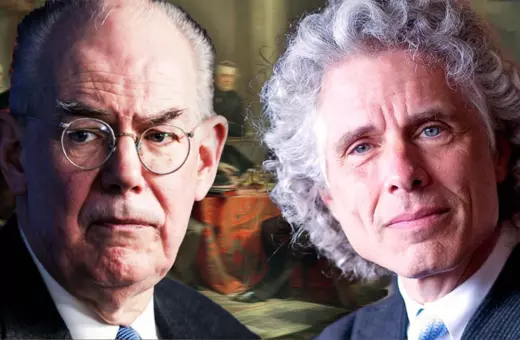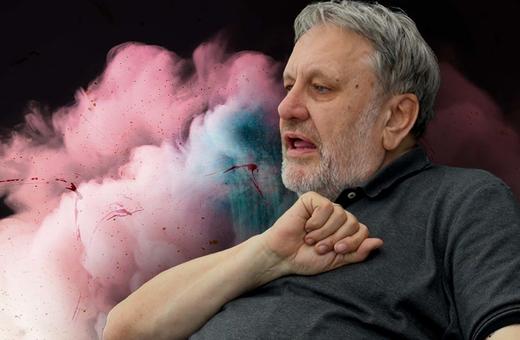Meaning in the 20th century went missing. With the decline of religion, and the rise of science, for many in the modern world nihilism has taken hold. But this is a mistake. We must usher in the return of meaning, for the existential health of our selves and our culture, writes John Vervaeke.
As we move into the real possibility of what is called artificial general intelligence (AGI), i.e., intelligence that is like or surpasses our own, we move into a problem centrally entwined with our intelligence, viz., the problem of meaning. Two questions immediately emerge: what is the nature of this meaning so central to our intelligent cognitive agency, and what relation does this cognitive meaning have to the existential meaning that has been of concern to philosophers perennially but especially since the advent of modernity and secularism? When Pascal talks about the infinite spaces of the scientific worldview and how they terrify him or Nagel talks about the problem of the absurd as we pursue objectivity, they are invoking a sense of meaning that has something to do with psychologist and philosophers are calling meaning in life [1]. This is the sense that one’s life makes sense in a way that has depth or realness because it connects one to something larger than oneself that has a value and a reality beyond one’s egocentric concerns and individual existence. This connection makes life worth living in the face of the frustrations, failures, suffering and sorrows that reliably assail human lives.
I want to argue that the meaning so central to AGI has two interrelated components. One is that our mental states are about something, they are directed beyond themselves to something other than themselves. My thought about a tree is not a tree but is directed at a tree. This is known as intentionality or original meaning, and it is problematic how to get this into the computational states of machines. [2] The second component is relevance. You are not like a standard computer because it does not care about the information it is processing. Its results may matter to you, but it does not care about the information for itself. However, it turns out that this ability to care about some information rather than other information is central to being an intelligent cognitive agent. The ability to pay attention to some information and ignore other information as irrelevant is crucial to being an intelligent problem solver. Notice that already the problem of cognitive meaning seems to be overlapping with existential meaning because cognitive meaning involves being directed/connected to something beyond oneself, and it involves sensing the relevance or importance of information.
___
We need wisdom and a capacity for transformative self-correction, i.e. self-transcendence, more than ever before.
___
I will further argue that as we answer the relevance problem, we begin to get an answer to the intentionality problem, and that as we do this, we will get a good explanation of existential meaning. So, as existential meaning becomes increasingly problematic due to historical factors, we have the potential emergence of an account of meaning-making within cognitive science that can help to explain the nature and function of existential meaning. This will help explain how this meaning-making can go awry, and how it can be afforded and improved. So, meaning is returning because the demands for it in cognitive science and in our lives are both increasing at a time when we may be able to jointly meet these demands.





















Join the conversation